If you’ve been following my Postcards from Night City series, you’re familiar with one vision of the world in the coming decades: glittering glass towers, pervasive advertising, bold fashion and shocking violence. Cyberpunk 2077’s construction of the world in 2077 is one familiar to the science fiction subgenre’s fans – it’s no wonder why the game is named after the genre it so clearly evokes, one embodied by the phrase “high tech, low life.” Cyberpunk 2077 is anything but generic, however. In capturing the beauty and ugliness (and there’s far more ugliness, even in the beauty) of a corporate dystopia, the game succeeds in connecting its fictional society with our own, centering contemporary anxieties that land just as solidly as its slick, action-packed gameplay.
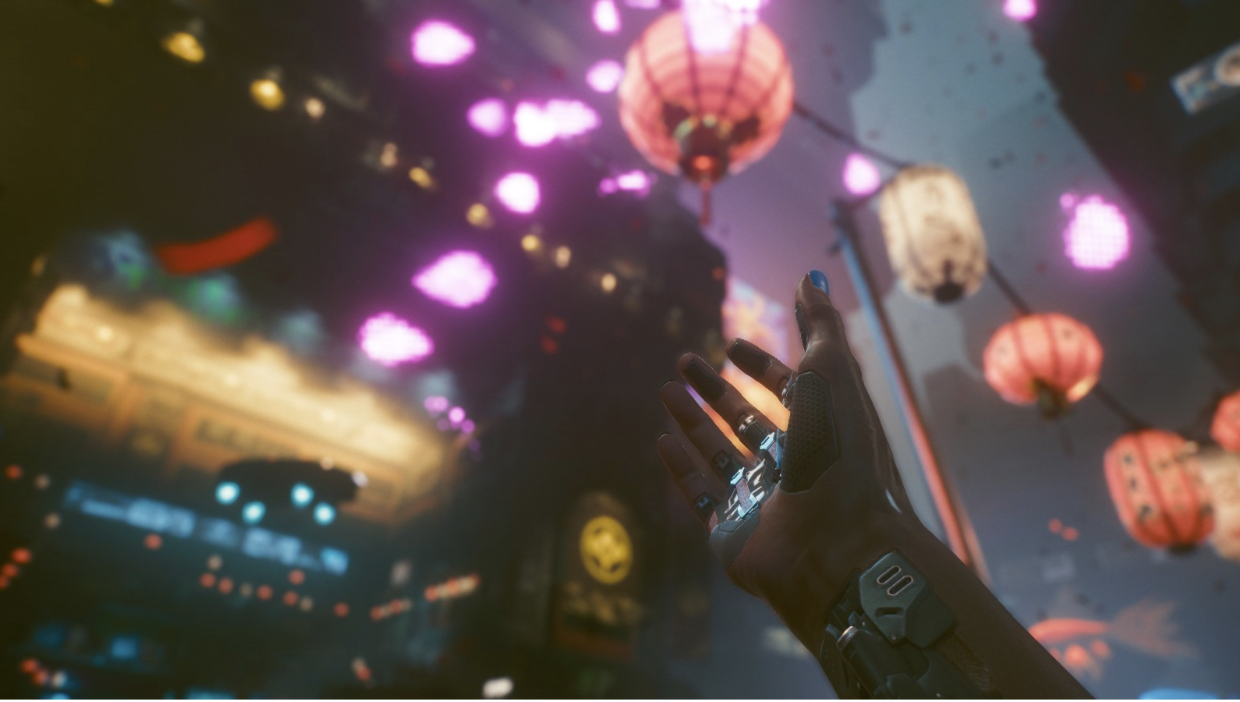
Cyberpunk 2077 stars V, an up-and-coming mercenary looking for a big-ticket job securing them a spot in hustler heaven. In addition to customizing V’s appearance, players also get to choose V’s background as either a Street Kid, Nomad or Corpo-Rat, texturing V’s history in a way few games do with their own protagonists. Regardless of how they started, though, V soon finds themselves entangled in a corporate conspiracy involving a botched heist, dangerous prototype technology and a long-dead terrorist/rockstar named Johnny Silverhand, voiced by none other than Keanu Reeves. With their life slipping away thanks to a buggy chip replacing brain matter with Keanu-Slurry, V frantically must claw through the morass of Night City’s underworld for a long-shot chance at prevailing against monolithic forces.
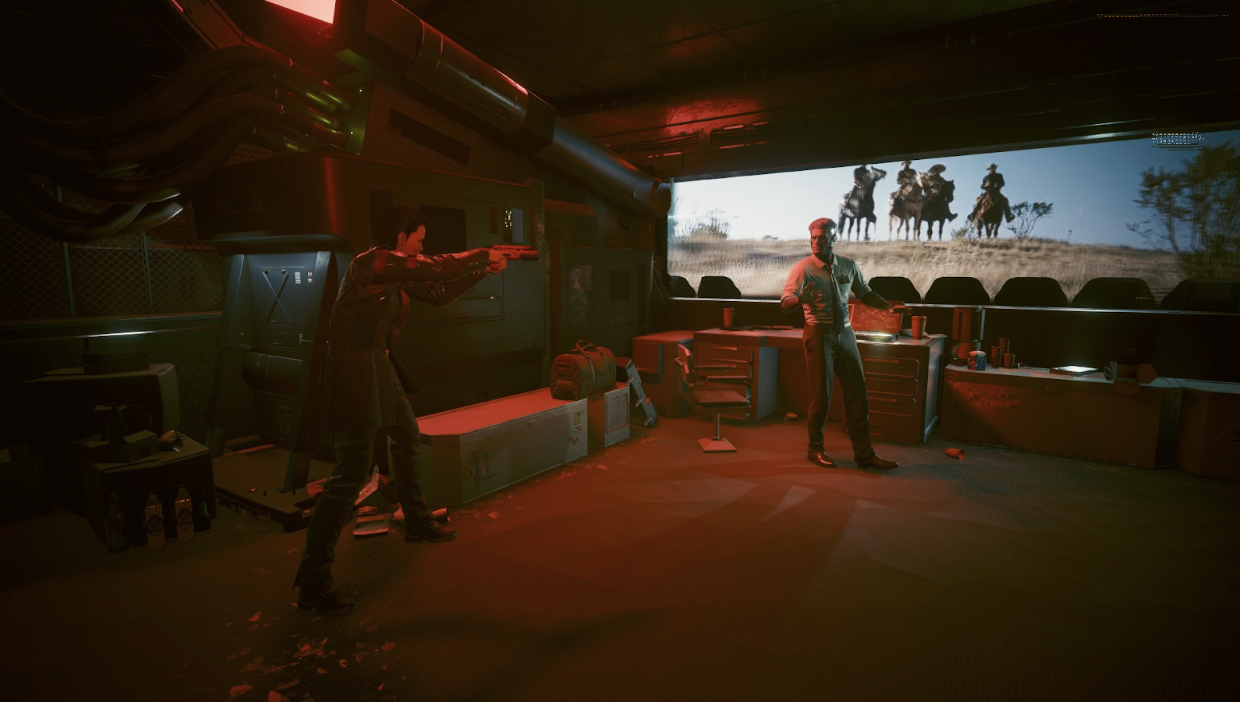
The game’s story is as gripping as it is frequently heartbreaking. The main narrative explores the cost of ambition, circling the ever-relevant question of whether it’s better to live fast and die young or grow old in a world that’s constantly threatening to leave one behind. V and the other characters in the story are trapped in an endless cycle of hustling for the big break that will let them leave Night City, only to find that the metropolis won’t let them go. It’s challenging to give a custom character a concrete personality in an RPG, but Gavin Drea and Cherami Leigh’s voice performances for male and female V slide smoothly between the tough merc front V puts up in the day-to-day and the vulnerable, terrified loner that emerges during the game’s more emotional moments. Reeves also stands out as the wise-cracking voice in V’s head, constantly making snarky comments and giving V a hard time. But, as the game goes on, the narrative unfolds to find the two unlikely companions firmly intertwined in their arcs, even if one of them isn’t “real.”
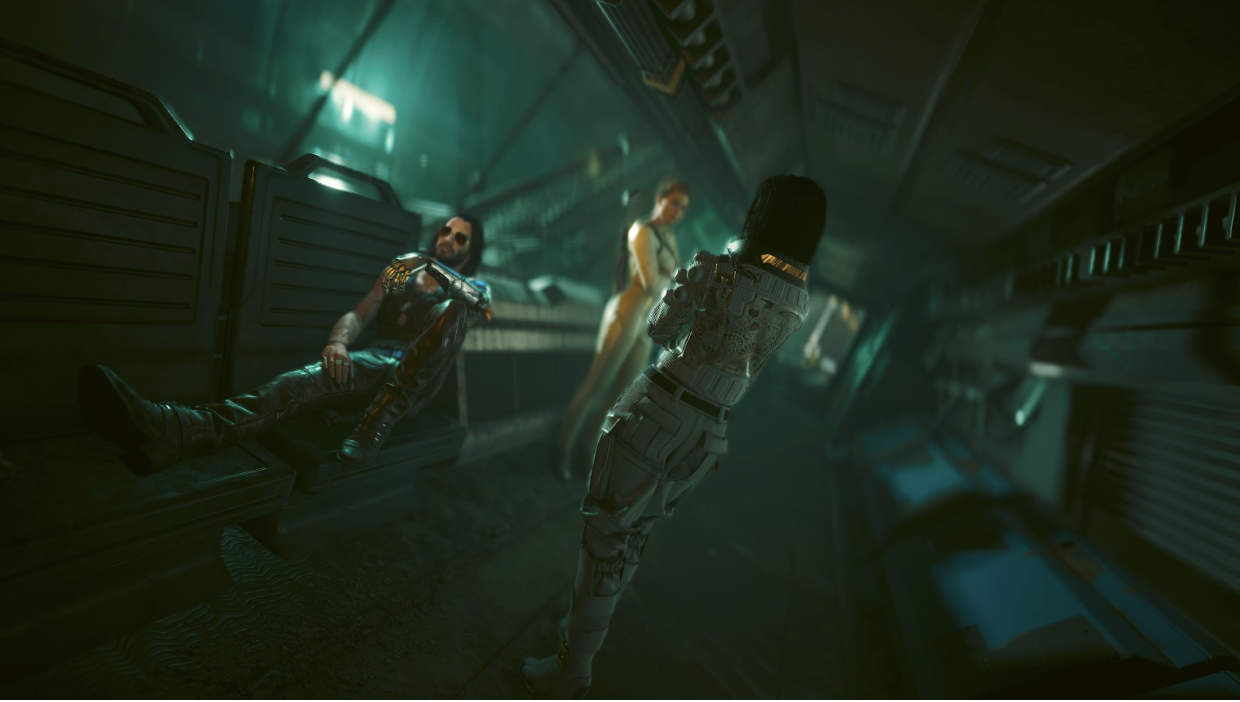
The entirety of Cyberpunk 2077 is played through V’s eyes. Except for one moment, Cyberpunk never leaves a first-person point of view. The game’s usage of the first-person powerfully situates V as a little fish in an ocean of sharks, denying players omniscient power and setting up surprising, emotional and cinematic story beats. It helps that Cyberpunk is, to use Reeves’ words, breathtaking. The environment of Night City pops with vibrant crowds, looming skyscrapers and nauseatingly invasive advertising. The game’s weapons and clothing items are immensely detailed as well: I spent a whole two-hour play session driving between the game’s different clothing stores and trying on outfits. Speaking of driving, traveling the city in one of the game’s many vehicles while listening to an original song from an in-game radio station (of which there are 14!) is one of the most immersive experiences I’ve ever had in a video game.
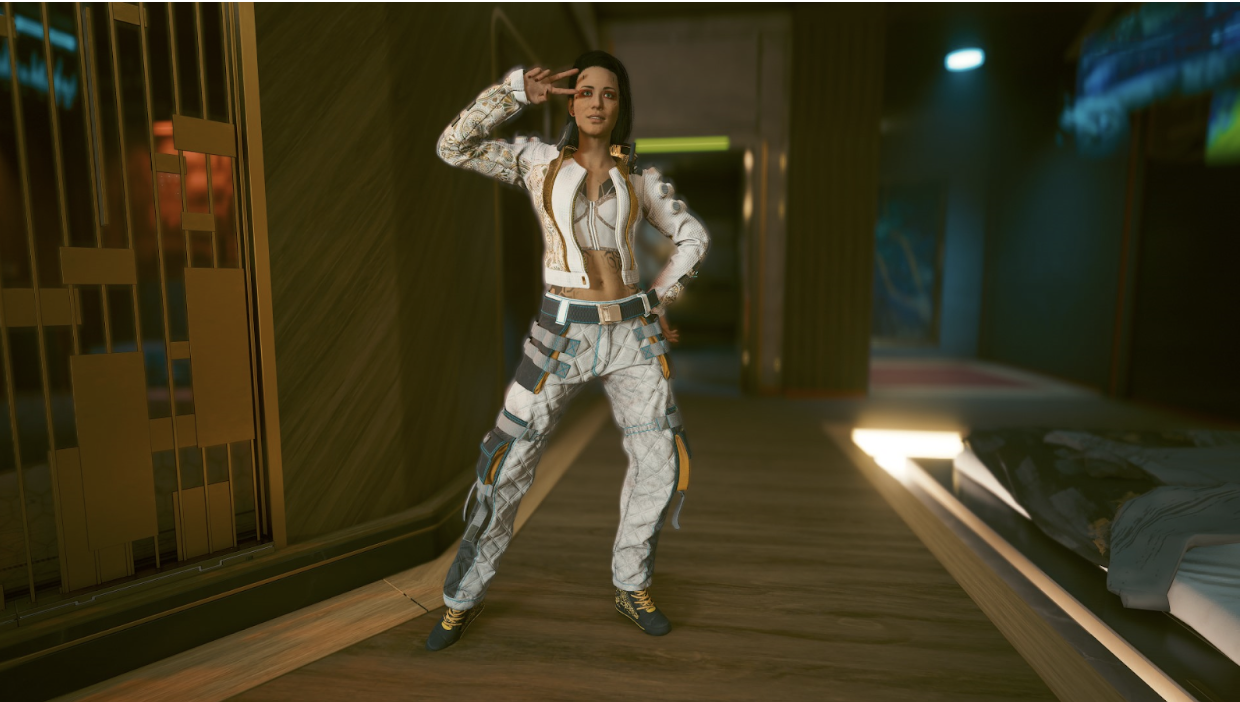
Though Cyberpunk had a rough launch in 2020 with numerous bugs leading to what amounted to a recall on the PlayStation 4, the recent releases of the Phantom Liberty DLC and 2.0 patch have revamped the game harder than a cyborg getting new chrome. The addition of the DLC slaps a brand new storyline in the middle of the main campaign, playing out somewhere between a James Bond movie and Escape from New York. The quality of the DLC astounded me, with its paranoia-inducing espionage segments and nail-biting side missions with difficult dilemmas stapled to them. That’s not even including the new car mechanics, weapons and Dogtown district that adds a whole new area to the game. Reeves also gets some voice-acting competition in the form of Idris Elba, playing spy Solomon Reed. Elba leverages his imposing, yet collected presence to steal the show of Phantom Liberty, always keeping players guessing with regards to his loyalties and attitudes.
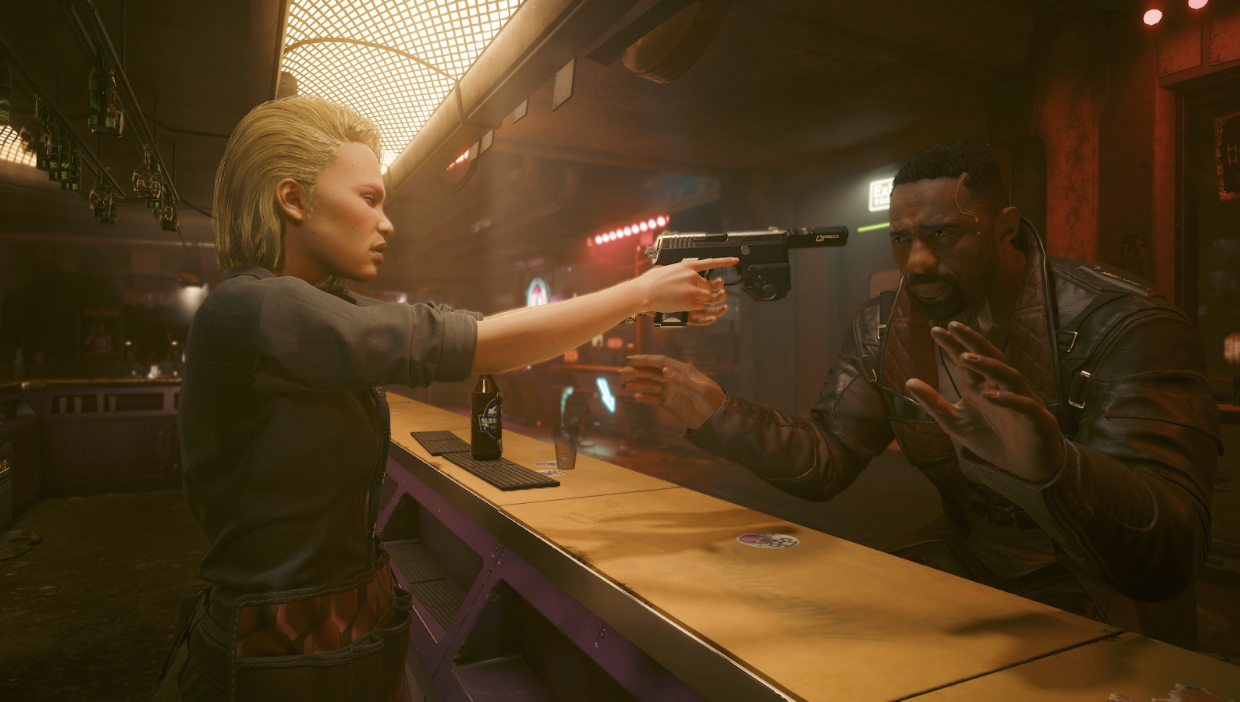
A common refrain in Cyberpunk is the feeling that V is damned if they do, damned if they don’t. I wouldn’t call Cyberpunk optimistic by any measure, but its specific portrayal of modern life warped by what seems to be the inevitable future of late-stage capitalism is strongly resonant. Choose whatever metaphor you want: the deck is stacked against us all when massive corporations can act with impunity because they have the bullets and bank accounts to back them up. Cyberpunk is about the struggle against the odds, of persevering in the most dire of circumstances. While some critics have noted the awkwardness of handling a narrative that impels its protagonist to act with urgency while simultaneously offering them to latitude to screw around, it’s a testament to the power of the game’s core message – to go, go, go no matter what – that these dissonances never feel unwieldy. And of course, I’m going to take time off to pursue side content, it’s some of the best parts of the game!
Cyberpunk’s smaller, human stories shine amidst the grittiness of the world and the muzzle flashes of its gameplay. Side characters like Panam Palmer, Judy Alvarez, River Ward and Kerry Eurodyne offer different visions of what life is like in and around Night City. Branching storylines off the main path explore what changes and what doesn’t in the future: corporations still try to gobble up land, sex workers are still grossly mistreated, cops are still dirty and pop music still sucks, even in 2077. There are hundreds of emails to be read, chat logs to be perused and other documents to be found. The mountain of worldbuilding goes to show just how much work went into the game.
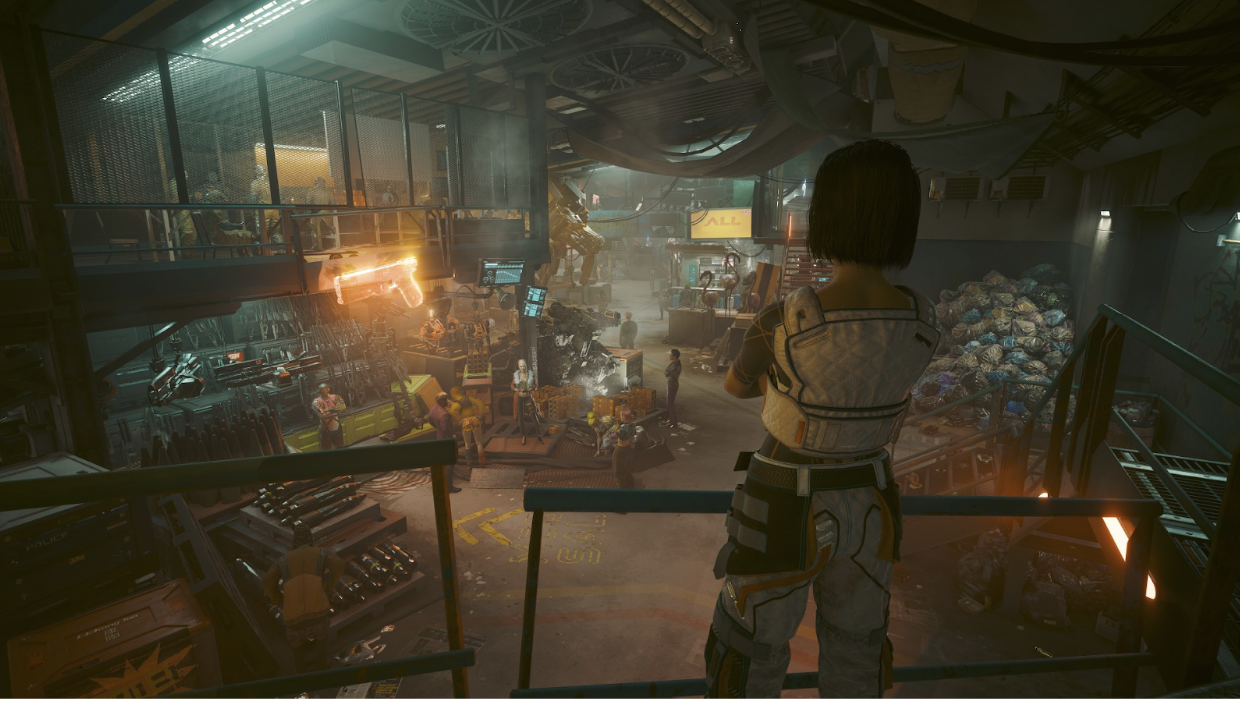
Cyberpunk 2077 is easily one of my favorite games of all time. Like Baldur’s Gate 3, its medium-defining writing and addictive core gameplay loop offer an enduring experience I can keep coming back to. Night City is as alluring as it is repellant – I would never want to live there, but I can’t leave, either.
Thumbnail by Conner Dejecacion, Design by CD Projekt Red